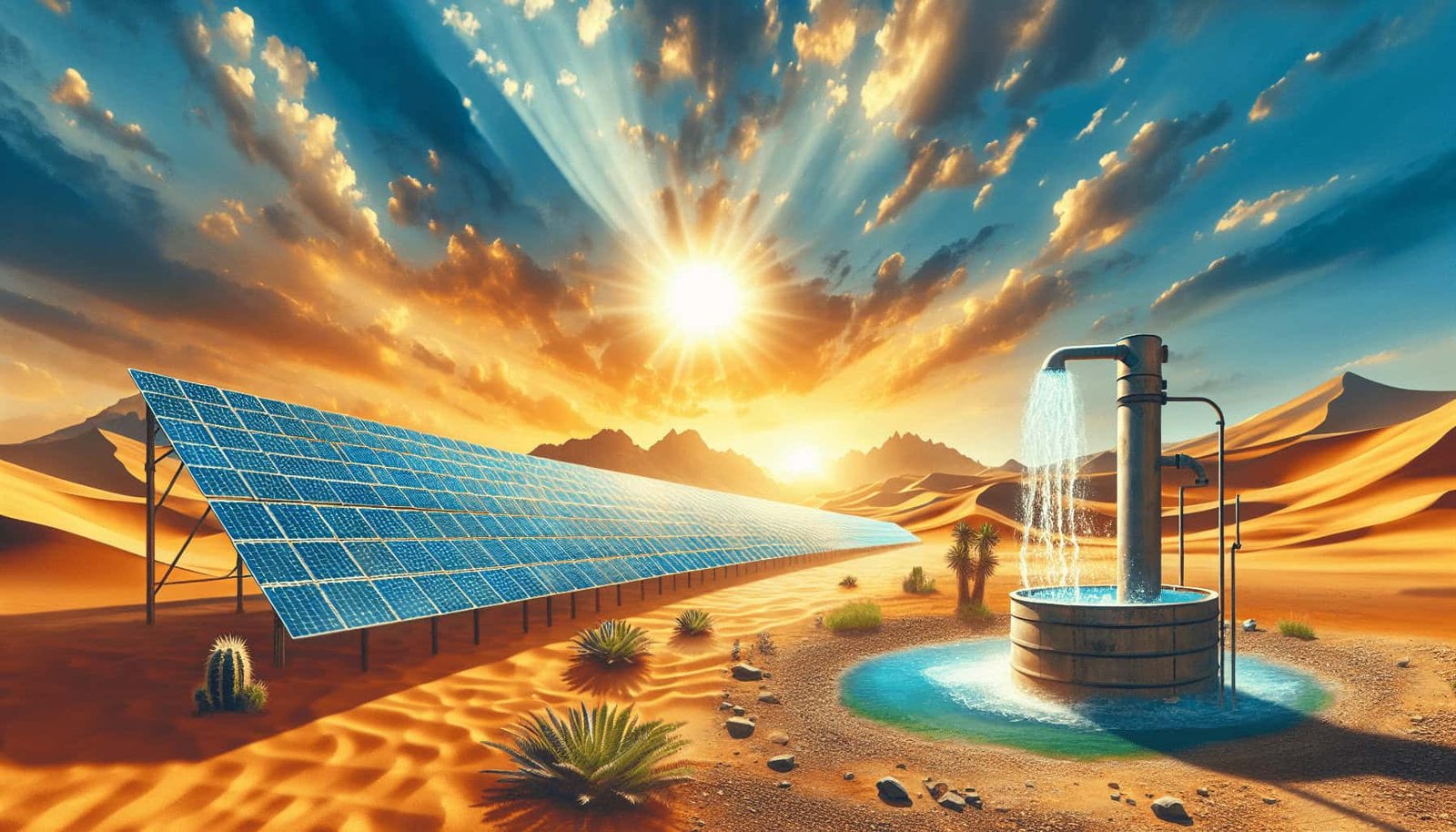The United Nations Development Programme (UNDP) recently took a significant step to empower the Jufra municipality by installing solar power systems to operate their essential water wells. This initiative is aimed at providing a sustainable and reliable source of energy, ensuring the community has consistent access to water. By harnessing solar energy, the Jufra municipality can maintain its water supply efficiently and reduce its dependence on non-renewable energy sources. This transformation is expected to improve the overall quality of life for the residents, promoting environmental sustainability and economic stability in the long run.
UNDP Installs Solar Power for Jufra Municipality to Operate Water Wells
Have you ever wondered how renewable energy can transform communities, especially in areas where resources are scarce? Well, the United Nations Development Programme (UNDP) has made significant strides in this arena with a recent project aimed at Jufra municipality in Libya. This initiative is a testament to the power of combining technology and sustainability to solve pressing local issues.

Introduction to the Initiative
The Jufra municipality in Libya has been facing challenges related to water scarcity and energy reliability for years. These issues have impacted daily life, agriculture, and overall community well-being. To address these persistent problems, the UNDP has installed solar power systems to help operate water wells in the area. This move aligns perfectly with global efforts to promote sustainable development and renewable energy use.
Why Jufra Municipality?
Background and Current Situation
Jufra, located in Central Libya, is a region known for its arid climate and scarce water resources. The local population heavily relies on groundwater pumped through wells, which are often powered by diesel generators. These generators, while effective, are not sustainable and have high operating costs.
Challenges Faced
The municipality has faced numerous challenges, including:
- Water Scarcity: Limited rainfall and unreliable water sources.
- Energy Dependence: High dependency on diesel generators, which are both costly and environmentally harmful.
- Economic Strain: The cost of diesel and maintenance of generators places a heavy financial burden on the local government and residents.

The Role of UNDP
Objectives of the Project
The UNDP’s primary objectives with this initiative include:
- Economic Relief: Reduce the financial burden of diesel fuel and generator maintenance.
- Sustainability: Promote the use of renewable energy to power essential community infrastructure.
- Resource Management: Ensure reliable and consistent access to water, which is essential for daily life and agriculture.
Project Implementation
The project involved the installation of solar panels capable of providing the necessary power to operate the water wells. This technology harnesses sunlight, a readily available resource in the region, to ensure a sustainable and reliable energy supply.
Benefits of Solar Power in Jufra Municipality
Environmental Impact
Solar power is a green, renewable energy source. By reducing reliance on diesel generators, the project significantly lowers the carbon footprint of the municipality. This positive environmental impact cannot be overstated in the fight against climate change.
Economic Advantages
Switching to solar power brings substantial economic benefits:
- Cost Savings: Lower operational costs compared to diesel generators.
- Long-Term Investment: Though the initial investment is significant, solar panels are low maintenance and provide energy for decades.
Improved Water Access
Reliable power means consistent water supply. With solar-powered wells, the community can count on steady access to water, which is crucial for drinking, agriculture, and sanitation.

Technical Details of the Installation
Solar Panels and Systems
The project utilized state-of-the-art solar panels known for their efficiency and durability. Each solar panel is designed to convert sunlight directly into electricity through photovoltaic cells.
Power Storage
To ensure that the water wells receive a steady power supply even during cloudy days or at night, the system includes a robust energy storage solution. Batteries store the excess power generated during the day, which can then be used as needed.
Infrastructure Integration
Table 1 below provides a summary of the major components used in the solar power installation:
| Component | Description |
|---|---|
| Solar Panels | Convert sunlight into electricity |
| Inverters | Convert direct current (DC) to alternating current (AC) for well pumps |
| Battery Storage | Stores excess energy for use during non-sunny periods |
| Monitoring System | Tracks performance and operational status |
Community Involvement and Response
Local Training Programs
UNDP believes in empowering local communities. Hence, they provided training programs to residents, teaching them how to maintain and operate the solar power systems. This approach ensures sustainability and local ownership of the project.
Community Feedback
The response from the Jufra community has been overwhelmingly positive. Residents have expressed relief over the reduced costs and increased reliability of their water supply. Additionally, the project has fostered a sense of pride and hope for further sustainable development initiatives.

Future Prospects
Expansion Plans
Given the success of the solar power installations in Jufra, there’s a strong case for expanding this initiative to other regions in Libya facing similar challenges. The model can be replicated and adapted based on specific local needs.
Sustainability Goals
This project aligns with several of the United Nations’ Sustainable Development Goals (SDGs), particularly:
- SDG 6: Clean Water and Sanitation
- SDG 7: Affordable and Clean Energy
- SDG 13: Climate Action
Technological Innovations
The use of the latest solar technologies in this project sets a precedent for future initiatives. Continued innovation in solar technology promises to make such projects even more efficient and cost-effective over time.
Challenges and Solutions
Overcoming Hurdles
While the project has been successful, it did face some challenges:
- Initial Investment: The upfront cost of solar power systems is high. However, funding from international organizations and the potential for long-term savings make it a worthwhile investment.
- Technical Know-How: Initially, there was a lack of technical knowledge among local residents. This was addressed through comprehensive training programs provided by the UNDP.
Lessons Learned
Several key takeaways from this project can inform future initiatives:
- Community Engagement: Successful projects involve local communities from the planning stages through implementation and maintenance.
- Sustainable Funding: Long-term sustainability requires a well-thought-out financial plan, leveraging both local and international funding sources.
- Adaptability: Each community has unique needs. Solutions must be adaptable to local conditions and challenges.
Conclusion
The UNDP’s installation of solar power systems in Jufra municipality represents a significant step toward sustainable development. By harnessing renewable energy, the project not only provides a reliable water supply but also alleviates economic pressures and contributes to environmental conservation. This initiative is a model for how technological and sustainable solutions can transform communities and improve lives.
So, what’s next for Jufra and similar regions? As communities, governments, and international organizations continue to collaborate, the opportunities for sustainable development are endless. Who knows—maybe the next big project could be in your community!
Thank you for taking the time to learn about this impactful initiative. If you have any thoughts or questions, feel free to reach out and join the conversation about sustainable development and renewable energy solutions.
